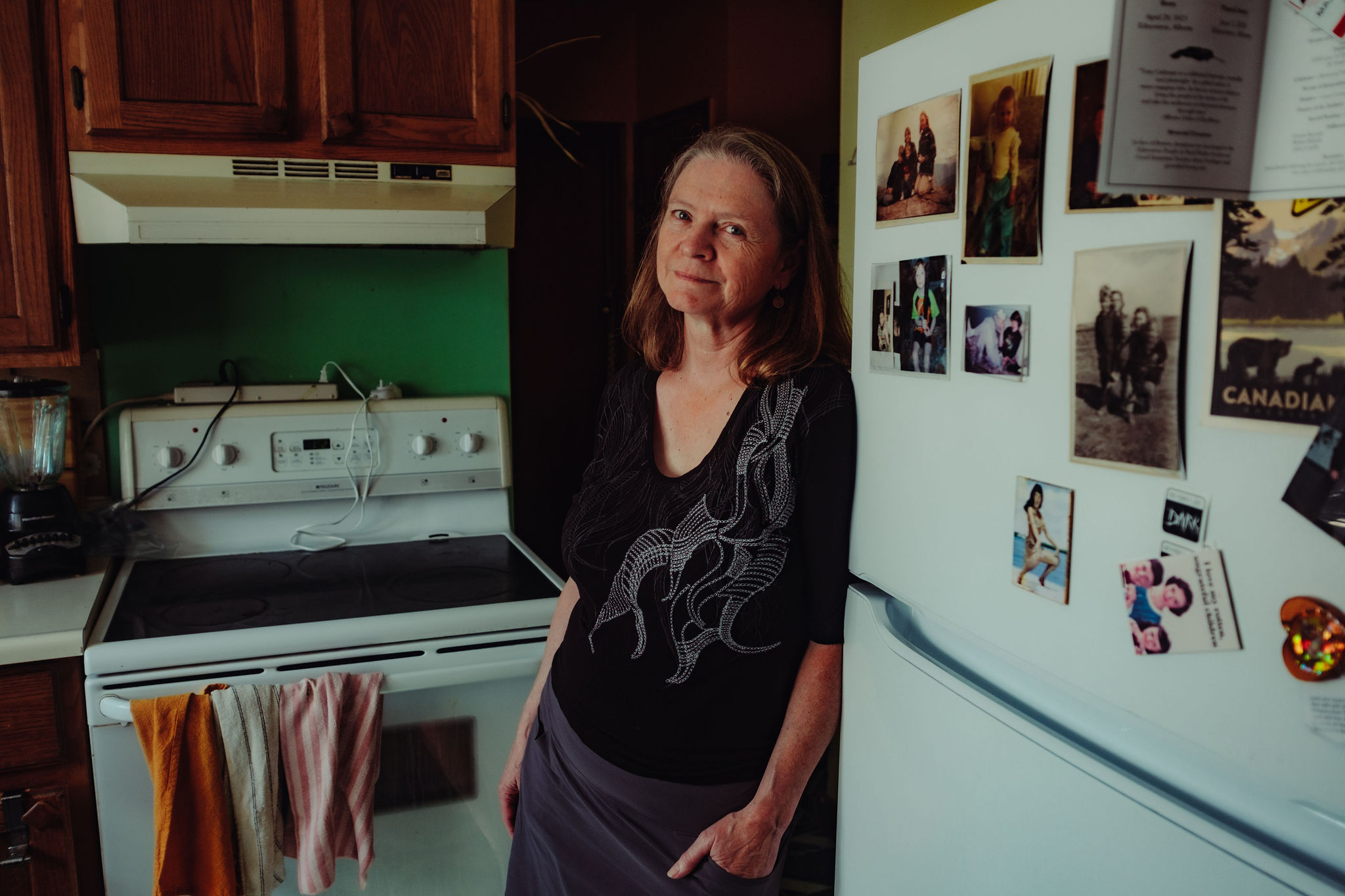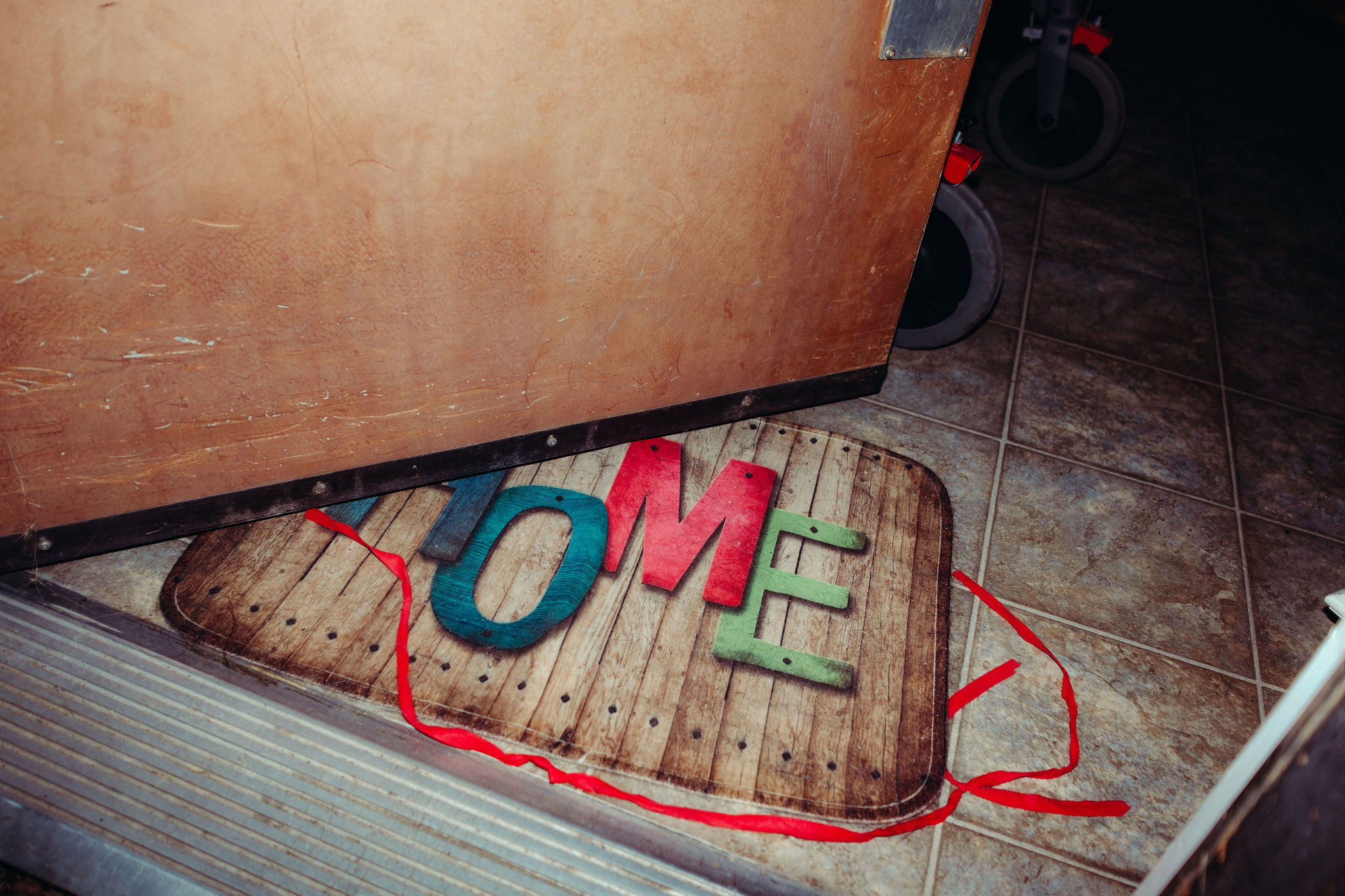This is one of 12 interviews conducted with various Edmontonians about their experience with the housing system. It has been edited for clarity and length. Read more about why and how Taproot embarked on this series.
Clare Mullen is a homeowner and entrepreneur who owns shares in several houses in Edmonton that are rented to individuals seeking housing. She works as a contract administrator in the health care sector.
Can you tell us what role you play in the housing ecosystem now?
I am a homeowner, and I am a landlord. Over the course of 25 years, my husband and I have bought investment properties to rent, and now we're slowly divesting ourselves of some of those because of where we are in our stage of life.
How did you get into investment properties?
When we were younger, my husband and I met a financial planner who said you should start investing because our house was getting paid off quite rapidly. We thought about mutual funds and we opted instead to go to real estate because it was an interesting market. We felt we had some knowledge about it and it was a little more hands-on. So we purchased several houses one by one. I think at the maximum we had about seven properties.
You said that real estate was a bit more "hands-on." Can you expand on that?
When we first started, we managed all of our properties ourselves. That means collecting rent and handling damage deposits, dealing with tenants, doing things like basic plumbing, basic yard repair, fence repair, stuff like that. There's always going to be those things that need to be fixed or repaired. Then because my job situation changed, we went with the property manager, so now all of our houses have a property manager except one.
Do you have any good or scary stories about being a landlord?
I think when you're first starting out, you don't know how to screen a potential tenant, and that was certainly our fault in the beginning. We rented the basement of a bungalow to a couple that we felt sorry for, and they proceeded to destroy the basement suite, causing the tenant on the main floor to move. They were selling drugs out of the house, they had about 12 people living there. They didn't pay the rent, and as things escalated, we had to evict them. We talked to them and explained the situation and that they had to go, and it was actually kind of terrifying because when my husband went to talk to them, they were throwing knives at the garage door. That's never something you want to see, and for the other tenants that lived there, it was nerve-wracking. We arranged with them to part immediately.
On the other hand, one of the very first tenants that we had is still there. That's a 25-year relationship. He keeps the lawn lovely, he doesn't complain, he's just terrific. It's an example of someone where we probably could have raised the rent 10 times, but he's a great guy, so we raised the rent only when we absolutely had to. When you talk about home, it is his home. He's lived there for almost as long as we have owned the house. He knows we'll have to sell it one day, and hopefully, he'll be in a position where he can move on.
You talked about providing a home for somebody. What does that mean for you?
I think that having a home is having stability. It's a place where you feel safe and comfortable. I think that it can be anything including an apartment where you rent, I think that's still a home. A home is having those comforts that you need that make your life stable and normal, and can offer you the quality of life that you need at the time.
Sometimes we have conflicting ideas about what a home really is and I think we all need to collectively shake our heads and realize what's really valuable. It's not about prestige or size or looks. It's about community. It's about safety and having that place that you can have your family in or your friends in. There are wonderful neighbourhoods that get a bad rap. There are great homes on the east and the north side of the city that are affordable still that are beautiful and have wonderful communities and community leagues and parks and recreation.
What kind of things should somebody think about if they're considering becoming a small landlord?
I think you have to be really cautious. I think you need to understand what the hard costs are. So choose well, because it costs you a large amount of money to purchase a place, and then there's bills associated with it. Are you paying those and absorbing that into the rent that the tenant pays or is the tenant paying those monthly utility bills?
The market fluctuations affected us. We bought a property in the height of the boom in 2008, which in retrospect was a terrible mistake. It's never regained that value. So it's a matter of holding it. Having said that, is that the end of the world? No, because if you hold it, either the price will get back up to that purchase price, or if nothing else the tenant is covering your mortgage and your expenses. I think the bigger concern in terms of risk has been the recent mortgage rate hikes.
Can being a small landlord be a good thing?
Yes, if you choose well and have good tenants, which most are. They value a place to live, and they value that you are not going to evict them for bad reasons, you're not going to raise the rents unreasonably. When you're an individual, you work hard to keep good tenants. There are great tenants all over the city, and there are great landlords all over the city, just like there are terrible tenants and terrible landlords.
Overall I don't think it's the greatest investment unless you're like the big corporations that are about profit. I think most small landlords are really about the end game when they sell and make a capital gain. You're going to pay tax on that, but still you get a return.
We went into it because I liked doing those small kinds of repairs. We like people, and it felt good to provide a home for people. It's not for everybody.
This interview was conducted on May 7, 2024.


